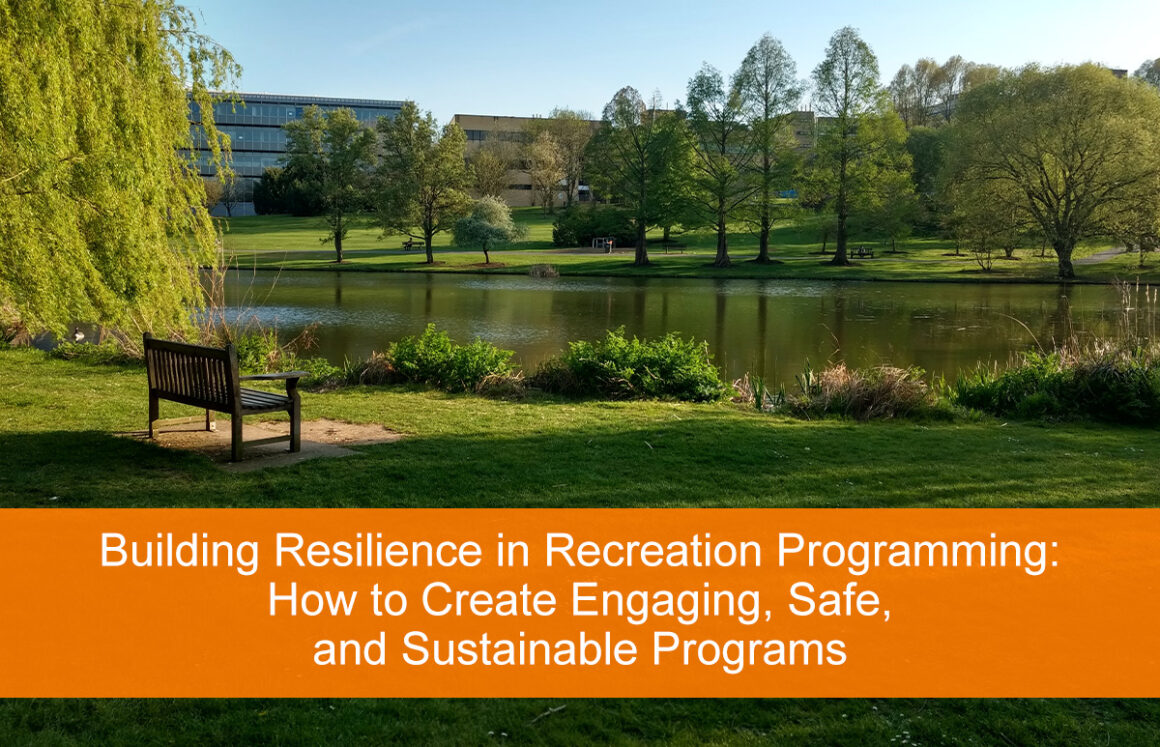Recreation programs have always played an important role in building resilient communities. Whether it’s through sports leagues, after-school programs or community events, these programs bring people together, foster a sense of belonging and help individuals build skills and confidence.
But in today’s ever-changing world it’s more important than ever to ensure that recreation programs are resilient and adaptable. Whether dealing with the ongoing impacts of responding to natural disasters or simply adapting to changing community needs and preferences, recreation programs must be prepared to weather any storm.
How can you build resilience into your recreation programming? Here are a few key strategies to consider:
Plan for the Unexpected
When it comes to resilience, preparation is key. By anticipating potential challenges and developing contingency plans you can ensure that your program is ready to adapt to any situation.
Start by identifying potential risks and challenges that could impact your program such as extreme weather events, staffing shortages, or unexpected changes in funding. Then, develop a plan for how you would respond to each scenario, including communication protocols, staffing plans, and contingency budgets.
Remember to regularly review and update your plans to ensure they stay relevant and effective.
Foster a Culture of Innovation
Resilience is not just about being prepared for the worst – it’s also about being open to new ideas and approaches that can help your program thrive in the long term.
Encourage staff and participants to share their ideas for improving your program and implementing new activities or initiatives. Consider experimenting with new technologies, such as virtual programming or online registration systems, to help your program stay connected and accessible.
Remember to seek out feedback from participants and other stakeholders to help inform your decision-making and ensure that your program is meeting the needs of the community.
Prioritize Safety and Risk Management
Creating a safe and secure environment is essential for building resilience in your recreation program. By implementing effective risk management strategies and protocols you can ensure that your program is prepared to handle any safety concerns that arise.
Start by developing clear policies and procedures around safety such as emergency response plans, staff training programs and equipment maintenance schedules. Make sure all staff and participants are aware of these policies and understand their role in maintaining a safe and secure environment.
Remember to regularly review and update your safety protocols to ensure they stay up-to-date and effective.
Build Strong Community Connections
Resilience is not just about your program – it’s also about the larger community you serve. By building strong connections with other organizations, community groups and stakeholders, you can ensure that your program is well-supported and able to weather any challenges that come your way.
Start by identifying key community partners and stakeholders such as local schools, non-profit organizations and community leaders. Consider how you can collaborate with these groups to share resources, expertise and ideas.
Remember to regularly communicate with your community partners to stay informed about the latest developments and ensure that your program remains responsive to community needs.
Emphasize Sustainability
Sustainability is a key aspect of resilience and it’s essential for ensuring that your program is able to thrive in the long term. By implementing sustainable practices and approaches, you can reduce waste, save resources and ensure that your program is financially sustainable over the long term.
Start by identifying areas where you can reduce waste and save resources, such as energy-efficient lighting or reduced paper usage. Consider how you can make your program more financially sustainable, such as by seeking out new funding sources or developing partnerships with local businesses.
Remember to regularly review and update your sustainability practices to ensure they remain effective and relevant.
Building resilience in recreation programming is essential for creating engaging, safe and sustainable programs

